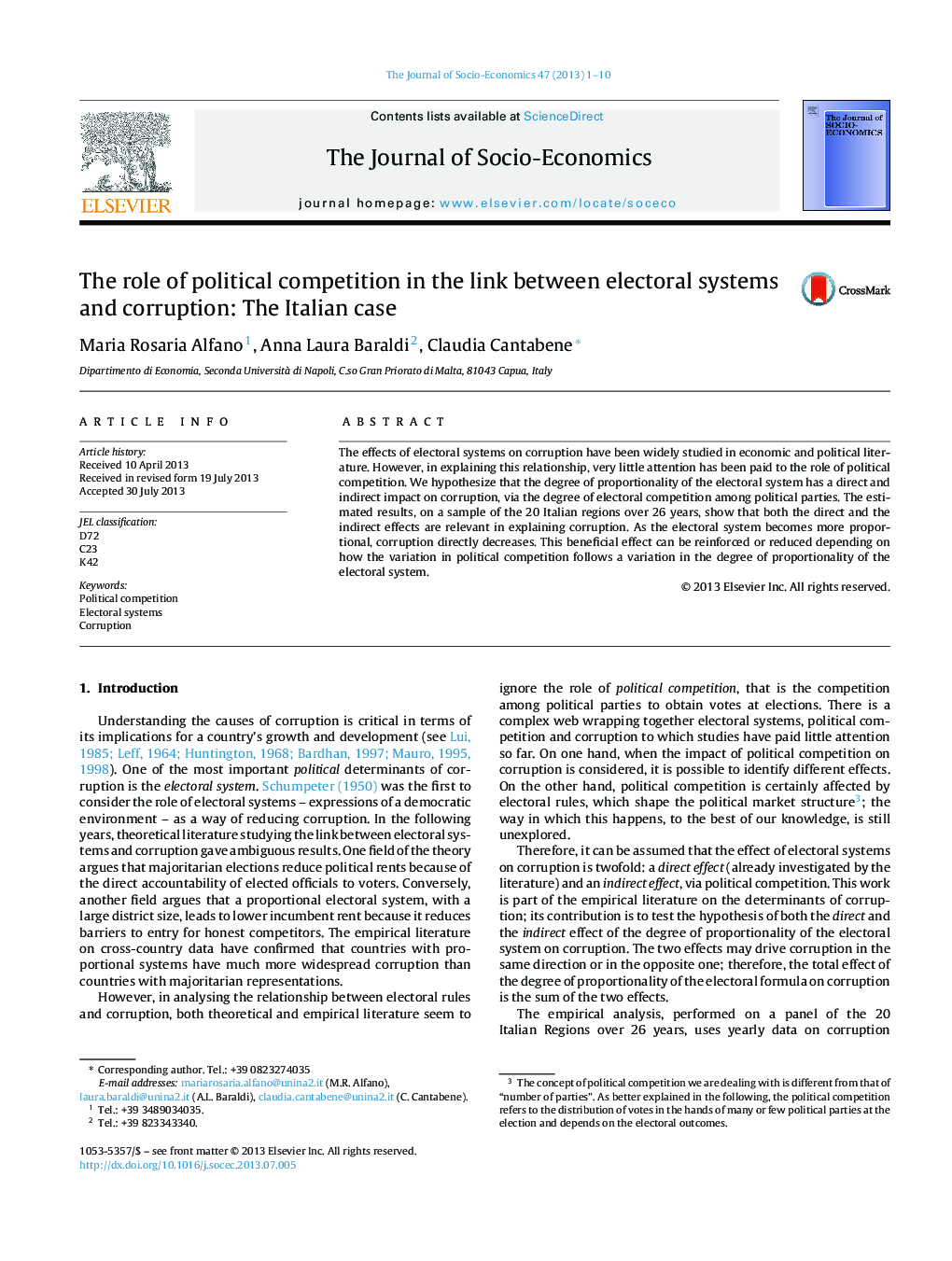| Article ID | Journal | Published Year | Pages | File Type |
|---|---|---|---|---|
| 7370454 | The Journal of Socio-Economics | 2013 | 10 Pages |
Abstract
The effects of electoral systems on corruption have been widely studied in economic and political literature. However, in explaining this relationship, very little attention has been paid to the role of political competition. We hypothesize that the degree of proportionality of the electoral system has a direct and indirect impact on corruption, via the degree of electoral competition among political parties. The estimated results, on a sample of the 20 Italian regions over 26 years, show that both the direct and the indirect effects are relevant in explaining corruption. As the electoral system becomes more proportional, corruption directly decreases. This beneficial effect can be reinforced or reduced depending on how the variation in political competition follows a variation in the degree of proportionality of the electoral system.
Related Topics
Social Sciences and Humanities
Economics, Econometrics and Finance
Economics and Econometrics
Authors
Maria Rosaria Alfano, Anna Laura Baraldi, Claudia Cantabene,
